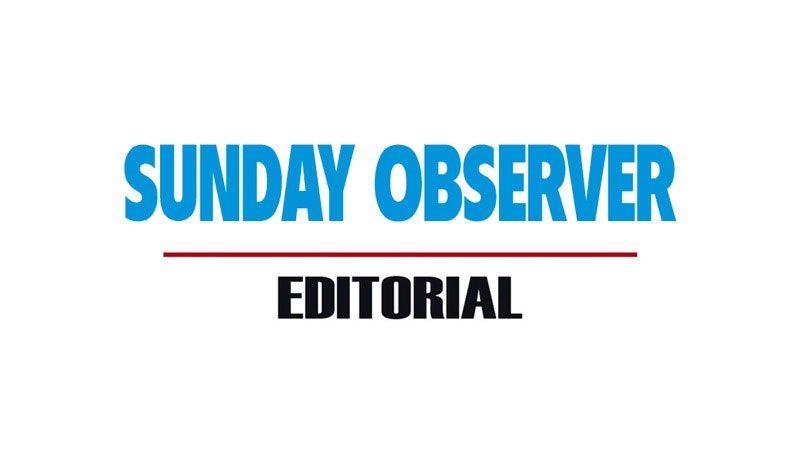Every time a Government appoints a new Cabinet, a debate ensues about its composition and the allocation of ministries. There is also a debate about the way certain disparate subjects are combined to form one Ministry. This is not surprising, given that at one time a previous Foreign Minister demanded that the two lotteries boards be brought under his Ministry.
However, some seemingly distant subjects can be an ideal combination if one looks at it from a fresh perspective. Media and Health, now under one Ministry, are two such subjects. Media and Health Minister Dr. Nalinda Jayatissa is eminently qualified to helm this Ministry, being a media savvy medical doctor.
The media is the most potent weapon that we can use against disease. This became apparent during the Covid-19 pandemic when the immense power of the conventional media, both print and electronic, was used admirably to spread the message of prevention. It is through the media that the public came to know of the importance of wearing masks, washing or sanitising hands, social distancing, cough etiquette, Personal Protective Equipment (PPE) and other health practices. The media’s extensive relaying of Public Service Announcements (PSAs) helped raise awareness of the disease and the steps that one could take to keep it at bay.
The conventional media also played another critical role that was not really appreciated at that time – fighting disinformation spread on social media and the Internet. Social media outlets such as Facebook, X, YouTube and Reddit were rife with outright lies on the two mRNA vaccines manufactured by Pfizer and Modena which had proven to be more than 90 percent effective against the onset of Covid-19 pandemic. According to such “fake news” posts, the two vaccines could even make recipients infertile. These completely unfounded claims were unfortunately believed by millions of people around the world, leading to deaths that could have easily been prevented.
Here in Sri Lanka, the conventional media rose to the occasion and painted a correct picture of the vaccines that helped the health authorities to save thousands of lives. Medical experts who appeared on TV regularly stressed the importance of getting the three Covid-19 jabs on time. Many TV stations also telecast 30-second PSAs on health practices and vaccines at prime time. This was one occasion that the conventional media triumphed over the Internet, despite almost everyone having a smartphone with an Internet connection.
Yet, the disinformation campaign against vaccines is not over on a global scale. There is a marked dip in childhood vaccinations in many countries including the US, where some politicians including incoming Health Secretary Robert F. Kennedy Jr, have peddled conspiracy theories regarding vaccines. Many parents have believed his claim that the Measles vaccine can cause autism, leading to an explosion of measles cases in the US and many developed countries. Even though scientists have debunked these claims with ample proof, people still fall for them. This has now become a global public health challenge.
In the light of such false claims amplified in the social media echo chamber, Minister Dr. Jayatissa must take the lead in championing the cause and efficacy of vaccines and vaccinations. Sri Lanka shines globally for its almost perfect childhood vaccination record. In close partnership with the World Health Organization (WHO), Sri Lanka has been conducting a childhood vaccination campaign for several decades that has drastically slashed infant and child mortality rates. These indices are, in fact, almost on par with those of the developed world, which is no mean feat for a small developing nation.
But young Sri Lankan parents who are constantly online might be gullible to the untruths regarding vaccines, which could roll back the progress the country has made in the health sphere. This is why a mainstream media campaign must take these false claims on vaccines head on. Of course, the mainstream media outlets themselves must also extensively use social media to get this message across if they are to target young families.
Such messaging must necessarily extend to every facet of healthcare. Sometimes, the message needs to be very simple. Many people living in remote areas spend much time and money to come to the main national hospitals in Colombo, Kandy or Galle (Karapitiya) to get treated even for simple ailments which can easily be handled by rural hospitals and healthcare centres. Many regional hospitals also have heart, eye and ENT facilities that obviate the need to rush to Colombo for related ailments. But many rural residents are unaware of this fact and think that one must rush to Colombo, Kandy or Galle even for influenza.
Since many rural dwellers have limited access to the Internet, it is best to use the conventional media to spread the message that the nearest hospital is often the best hospital for a range of healthcare needs. This will reduce congestion at the main hospitals and save time and money for rural patients. In any case, the doctors at a given rural hospital can determine whether a patient has to be transferred to a bigger city hospital by ambulance. It is also vital to educate the public that there is no greater benefit in using brand-name drugs instead of generic drugs which are many times cheaper. Moreover, patients are generally in the dark about the actual Maximum Retail Prices (MRPs) of both generic and imported brand-name drugs. These should be regularly published via the print media in all three languages to keep the public informed.
There should also be a bigger media campaign focusing on Non-Communicable Diseases such as heart disease and diabetes especially with regard to preventive measures. The media must cooperate with the new Health Minister to popularise the age-old wisdom that “Health is Wealth”.




